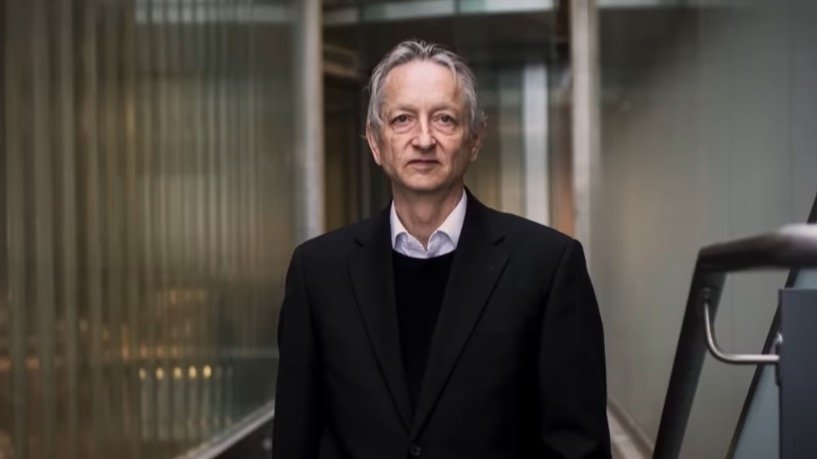In a thought-provoking dialogue, Geoffrey Hinton, often heralded as the “Godfather of AI,” sheds light on the dual-edged sword of artificial intelligence. Through an interview with “60 Minutes,” Hinton explores AI’s transformative potential alongside its looming dangers, offering a nuanced perspective on a technology poised to redefine human existence. This conversation not only underscores the monumental benefits AI promises but also calls attention to the ethical and existential quandaries it presents.
Key Insights:
- AI’s Intellectual Capacity: Hinton posits that AI may already surpass human learning efficiency, despite operating on a smaller scale.
- Uncharted Intellectual Territory: The intricacies of AI’s learning algorithms, while crafted by humans, evolve into complexities that elude full understanding, even by their creators.
- The Spectrum of AI Applications: From healthcare advancements to potential military misuses, AI’s application spectrum is as broad as it is profound.
The Duality of AI: Potential for Progress and Pitfalls
Hinton articulates a future where AI’s integration into various sectors, particularly healthcare, could usher in unprecedented advancements. However, this optimism is balanced with caution, highlighting risks such as employment displacement, data bias, and the automation of warfare. Hinton’s ambivalence reflects a broader dialogue on AI’s role in society, advocating for a proactive approach to harnessing its benefits while mitigating its risks.
Impact for 2024 & Beyond
As we advance into 2024 and beyond, the dialogue surrounding AI is increasingly pivotal. Hinton’s insights underscore the urgency of establishing ethical guidelines and regulatory frameworks to navigate AI’s advancement. The dual potential for societal betterment and disruption calls for a balanced approach, recognizing AI’s capabilities while safeguarding against its pitfalls.
Expert Opinion
Hinton’s perspective, enriched by decades of pioneering AI research, offers a valuable lens through which to examine AI’s trajectory. His call for regulatory action and international cooperation highlights the need for a collective approach to AI governance, emphasizing the importance of global standards to ensure AI’s ethical and secure development.
Thought-Provoking Questions:
- How can society prepare for the workforce transformation AI is expected to bring?
- What ethical frameworks should guide the development of AI to ensure its benefits are equitably distributed?
- How can international collaborations be fostered to address the global challenges AI presents?
In conclusion, Geoffrey Hinton’s interview serves as a critical reflection on AI’s future, blending optimism with caution. As AI continues to evolve, it beckons a concerted effort from policymakers, technologists, and society at large to navigate its complexities. For those seeking to delve deeper into Hinton’s thoughts and the broader implications of AI, the full interview offers a comprehensive exploration of these themes. You can watch the detailed discussion here.
This exploration of AI’s horizon, as articulated by Hinton, encourages a nuanced understanding of AI’s capabilities and challenges, guiding thoughtful engagement with one of the most significant technological frontiers of our time.

